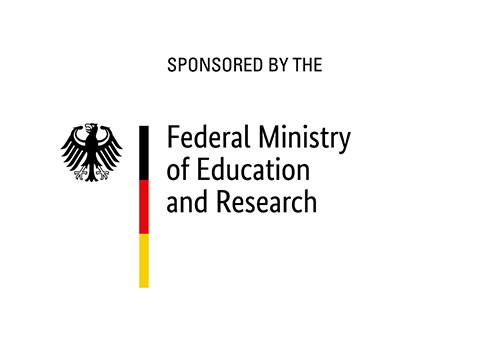With the successful pilot projects Heidelberg-Neurott (p. 83) and Knittlingen (Fig. 1 and IGB Annual Report 2006/07 p. 80) within the project "Decentralised Urban Infrastructure Systems DEUS 21", the Fraunhofer IGB has taken a major step towards implementing the water management concept (p. 25) which was awarded the Fraunhofer Prize 2007. Since 2005, numerous interested visitors from Germany and abroad have visited the two plants.
Namibia: Adaptation of the concept DEUS 21
DEUS 21 is particularly worthwhile in regions where
- no water infrastructure yet exists,
- rapid changes require a flexible system, or
- wastewater from wastewater treatment plants must be of high quality, e.g. if the treated wastewater is to be reused.
The first projects to adapt DEUS 21 to various framework conditions are now also underway. In addition to a project in Saxony in which semidecentralized concepts are being developed for rural areas particularly affected by migration, the Fraunhofer IGB has also been active in southern Africa since November 2006. We are developing concepts for water use in dry regions using the example of the project "Integrated Water Resources Management in Northern Namibia - Cuvelai Basin (CuveWaters)".
Challenges: Drought and poverty
The situation in northern Namibia, one of the driest regions in sub-Saharan Africa, is as follows:
- Drinking water is obtained solely from a border river with Angola, which makes the inhabitants of the Cuvelai Basin dependent on economic and political developments in Angola. Surface water exists only during the rainy season, the groundwater is either too deep or too salty.
- 70 percent of the urban population have neither their own water supply nor a sewage disposal system. Only shared taps and some dry toilets are available.
- The wastewater of the urban population is collected and discharged into wastewater ponds where it evaporates or seeps away. Because of the low gradient, it has to be lifted again and again by means of pumping stations.
Determine acceptance through on-site discussions
On the basis of a data collection on site and the experiences with DEUS 21, possible solutions for a sustainable urban water management under Namibian conditions were developed (Figure 2). In two workshops (Fig. 3), we determined the acceptance of possible solutions and preferences for water use among future users, inhabitants of an unplanned "informal settlement", together with a Namibian research institute, the Desert Research Foundation.
Sanitary centre as a solution
The following concept is currently emerging: In a shared sanitary centre, residents are given access to toilets and washing facilities for a fee. The waste water is fed via a vacuum system to a semi-decentralised sewage treatment plant. Here it is treated anaerobically. The resulting biogas is made available to the residents for cooking. By using a rotating disk filter in the sewage treatment plant, the effluent is free of pathogenic microorganisms. However, it still contains many nutrients so that the water can be used for irrigation and fertilisation in vegetable cultivation. This creates an additional source of income for the inhabitants.
The concept is currently being refined together with the local users and will then be implemented as a demonstration object in a second project phase.
Funding
We would like to thank the Federal Ministry of Education and Research (BMBF) for funding the project "Dezentrale Urbane Infrastruktursysteme DEUS 21" (Decentralised Urban Infrastructure Systems DEUS 21), funding code 02WD0850.

 Fraunhofer Institute for Interfacial Engineering and Biotechnology IGB
Fraunhofer Institute for Interfacial Engineering and Biotechnology IGB